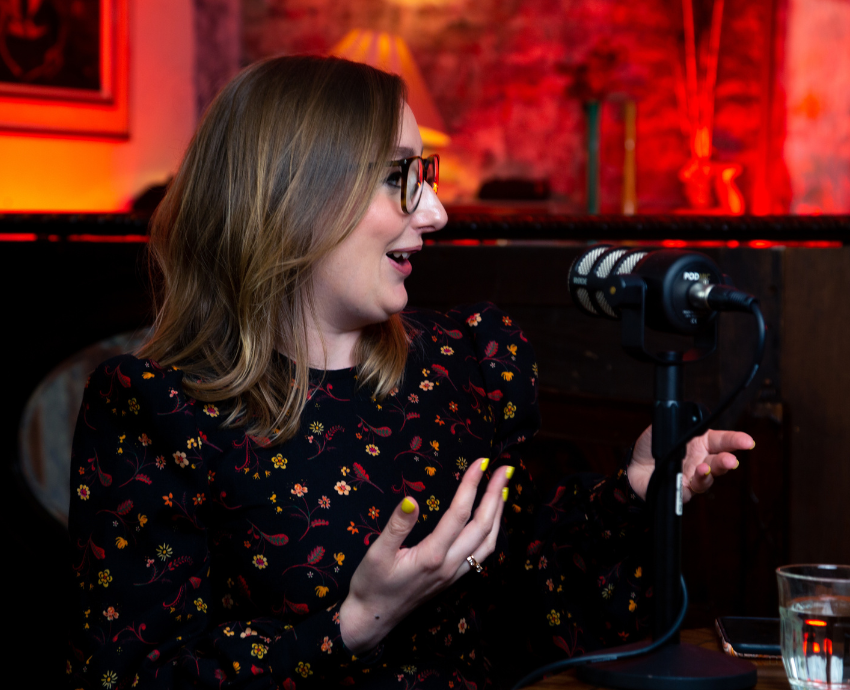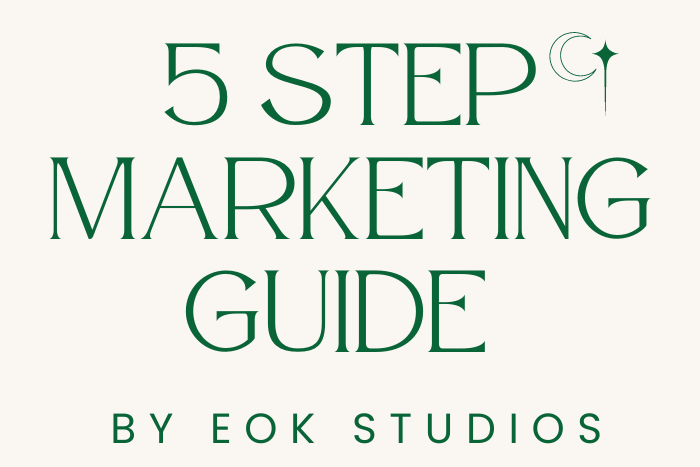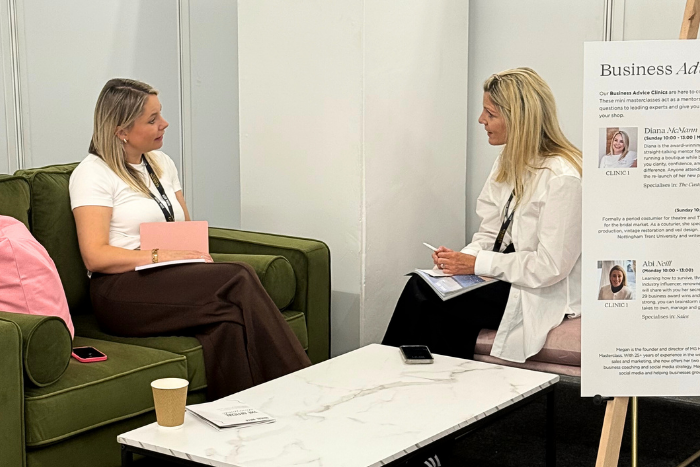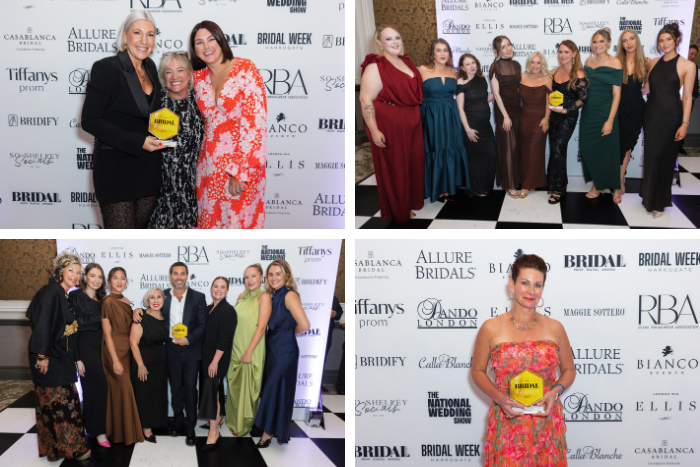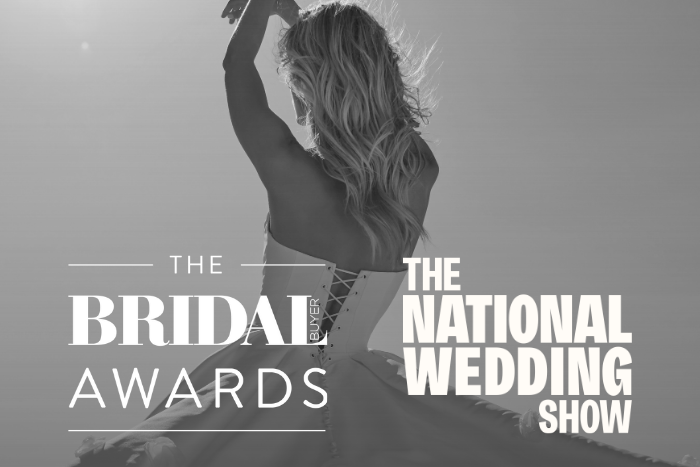Say ‘I Do’ to podcasting
Wedding expert Zoe Burke, editor of Hitched, looks at creative ways to engage with your audience. Could a podcast be the perfect platform for you? Here’s everything you need to know...
It feels like the world and their dog are all starting podcasts right now – but for good reason. A podcast is a great way to connect with your audience, demonstrate your expertise and build rapport with potential customers. At Hitched, we started a podcast – called ‘What Not to Do When Planning a Wedding’ – in September 2023, after mulling over the best way to do it for several months. It’s been a great success and it was an absolute blast to make, so I’m going to share seven key tips on how to start your own.
1 Identify Your Audience
This one should be easy – as a business owner, you’ll already have a clear idea of who your target audience is. What can you give to them: what problems do they face and how can you solve them? What platforms do they interact with you on the most, and what information can you give them that no one else can?
2 Find the Right Concept
For once, it wasn’t laziness or procrastination that meant it took me months to script, produce and promote the ‘What Not to Do When Planning a Wedding’ podcast. It was a very clear understanding that it had to stand out. I won’t lie to you, the podcast market is saturated and consumers are spoilt for choice when it comes to what they listen to when they walk the dog, go to the gym or do their weekly shop.
To come up with a concept, it’s worth looking at your ‘competition’ – consider what people are doing, but also what they’re not doing. Set up a brainstorm with your team to come up with new ideas, and most importantly – poll your audience. Use your social channels to ask your followers what they want.
It’s so simple but it’s honestly the best way to ensure you are meeting your customers’ needs.
3 Work on a Content Strategy
It won’t be a surprise to know that you need a strategy to run a successful podcast. How many episodes will you do? What will they focus on? What’s your cadence? Will you need guests involved? Think about these logistics and plan your strategy accordingly. I started working on my strategy in the early spring of 2023, but we didn’t actually end up making the podcast until the mid-summer, because a good strategy takes time.
Don’t just think about the strategy for creating it, but also promoting it. How often will you release it, is there space in your social calendar for promotion, what channels are you going to push it out on and how frequently?
Are you going to collaborate with anyone or bring on guests? If so – will they also promote it? How will you create the content with them? There are so many things to consider.
4 How Are You Branding It?
This was a huge consideration for me – the Hitched podcast was branded with our logo and colours, and promoted on our channels, but I chose to name it ‘What Not to Do When Planning a Wedding’ as it felt fun and likely to stand out. Do you want your podcast to be a brand extension, or do you want it to be an offshoot that markets to your audience in a more subtle way? It’s worth doing some market research with your audience – what kind of names do they prefer? Can you send out a survey to get some valuable feedback?
5 What Does Production Entail?
I’ve seen all manner of podcasts – from screen recorded Zoom calls to slick, in-studio series – some with video, some without. Think about what makes you engage with them – is it the format or is it who is on it and what they are saying?
Producing a podcast can be hard work. Do you have someone on your team who is able to edit video and audio and upload it to your chosen platforms? Or will you need to hire someone?
We hired a freelance producer for ours but I think it’s important to note that the quality of the content and the promotion of it is what will make it truly stand out.
6 Pick Your Platforms
There are a whole host of platforms for podcasts out there, but the most popular ones are typically Spotify and Apple Podcasts. Spotify for Podcasters recently acquired Anchor, another popular podcast platform, and they have a really simple, easy interface for uploading podcasts and monitoring your analytics. You can view your Apple listeners through Spotify, too, if you have them synced up – I was pleased to discover how straightforward it all was, and how detailed their ‘how-to’ guides are.
Finally, don’t sleep on YouTube! YouTube is still a giant in the world of social media, and if you are making video episodes of your podcast, then ensure you’re uploading them to YouTube, too, for max visibility – they even have a podcast option. It’s also super easy to embed YouTube videos onto a website, for additional promotion.
7 Guaranteeing Audience Engagement
Once you’ve got a rock-solid strategy, a star guest list and the perfect promotion plan, and you have created the content, you need to ensure that your audience engages with it. Spotify offers a great way to do this – you can add polls and survey questions to your podcast episodes to find out more about your listeners. But you can also do this through your own social channels – ask people questions in your captions when you promote it, and pay attention to what your listeners share. They’ll listen more if they feel like you’re listening to them, too!
Think about those seven things before you start to formulate your podcast, but I would also say that the biggest thing to consider – and perhaps the one that surprised me the most – is to have fun doing it.
Thinking up and creating ‘What Not to Do When Planning a Wedding’ for Hitched, with my wedding industry bestie Nina Beer, was a lot of work, of course (although we did have our planning meetings at The Ned fuelled by cocktails, because…why not?), but it was also an absolute joy to do. We enjoyed each other’s company, and loved what we were talking about and the topics we were focusing on. And I think (it’s not biased to say this, right?!) it shines through in the content. If your podcast focuses on your passion, it’s hard to go wrong.
What you need: Your Podcast Producing Product List
- A USB Microphone - invest in a good quality mic for clear audio
- Headphones - if you’re doing it yourself, you’ll also need closed-back headphones to monitor your audio
- Pop Filter - a pop filter is something you attach to a mic to tone down those ‘p’ and ‘b’ sounds that tend to be a little explosive!
- A Mic Stand - it’s worth having a stand for your microphone, as clipping ones to clothing can be a little rustle-y, and your arm will get tired holding up a tiny one!
- A Well-Furnished Space - luckily for you, bridal boutiques are great locations for recording audio - those wall-to-wall rails of dresses soak up any echoes
- Recording Software - You’ll need something to allow you to capture and edit your audio - Audacity is a platform that allows you to do this for free, before uploading to your hosting sites
Zoe Burke is the editor of Hitched.co.uk and co-host of the Hitched podcast, ‘What Not to Do When Planning a Wedding’, available on Spotify, Apple Podcasts & YouTube.
